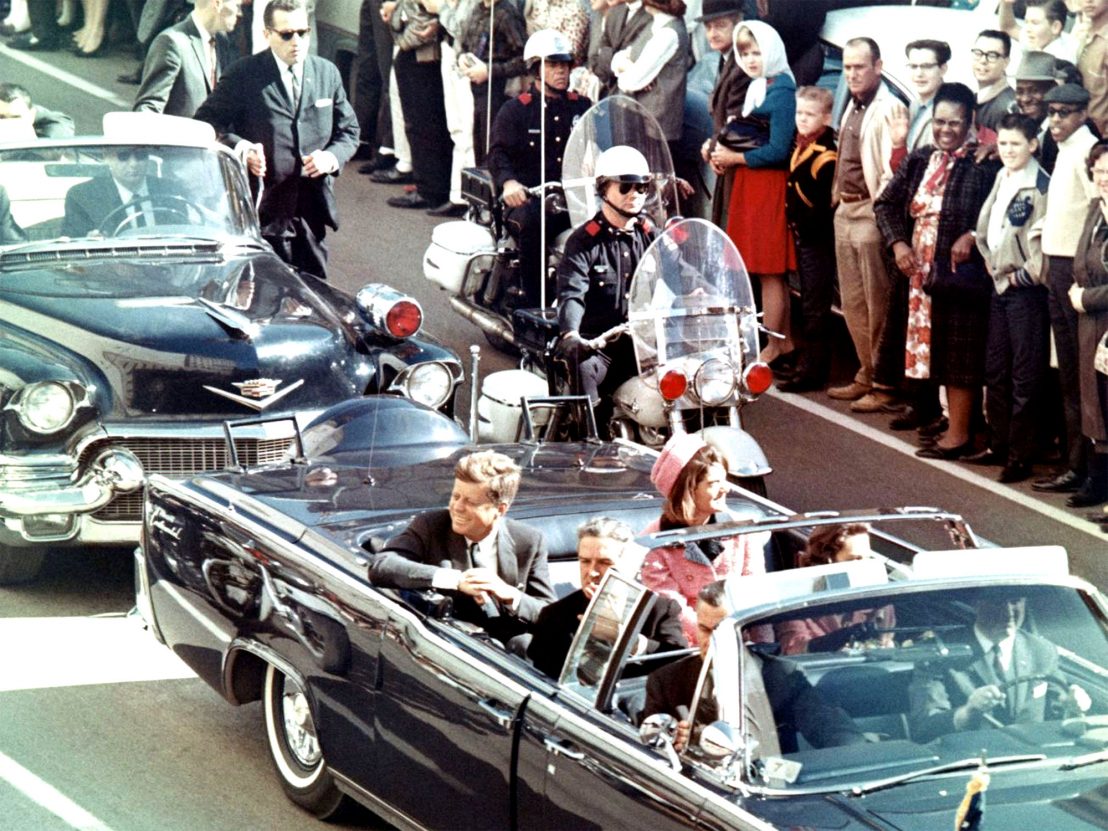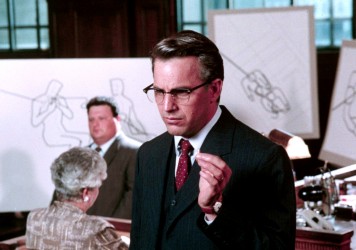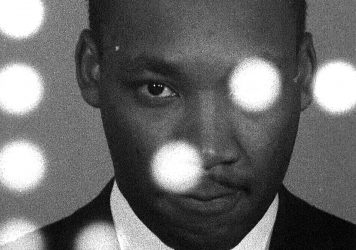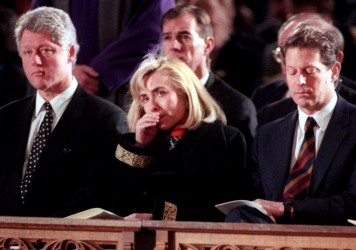
Oliver Stone is at his most conspiracy-minded in this entertaining but outlandish doc on the JFK assassination.
Less revisited, more rehashed. Oliver Stone returns from a bit of a directorial hiatus to don an ill-fitting linen suit and take a quizzical stroll once more around Dealey Plaza in search of the real truth behind America’s great shame: the assassination of John F Kennedy in 1963.
This info-dump documentary, narrated 50/50 by Whoopi Goldberg(!) and Donald Sutherland, plays a little like a plush Blu-ray extra to Stone’s 1991 conspiracy-minded courtroom drama in which he – via the efforts of New Orleans DA Jim Garrison – made the (rejected) case that Lee Harvey Oswald was not a lone gunman, and that nefarious state actors must have been involved in the killing.
We’re living in a moment where dangerous and often lunatic conspiracy theories have seeped into mainstream life via their incessant proliferation through online channels. It’s interesting, then, to have a film which, from all angles, feels like it’s pedalling something close to a tin-hat conspiracy theory, albeit one in which the “facts” that are presented come do across with a strong semblance of academic authenticity. Stone’s film serves to muddy that line between a noble search for finite truth (or something as close to that as possible), and the meticulous actions of those whose only purpose is to distort and confuse.
In tone and style the film has the slightly creaky vibe of a luxe History Channel presentation, particularly with its wall-to-wall soundtrack of ominous orchestral arpeggios and talking heads set against interrogation-room black backdrops. It’s a film which talks in the language of agitprop nonsense like 2005’s online 9/11 doc, Loose Change.
Stone lines up a rogues gallery of authors, researchers and private investigators to articulate his assumptions, and the film runs through fan favourites such as the “Magic Bullet” theory, the doctored images of Oswald doing outlaw gun poses in his garden, and the stray rifle bullet that was conveniently found on JFK’s hospital gurney (which one pathologist claims just fell out of his back).
The first half of the film retains a forensic eye on details directly relating to the assassination, many of which further refute the findings of the Warren Report from September 1964 which claimed there was no evidence of foul play. The film then shifts towards its own character assassination of pipe-smoking CIA chief Allen Dulles, who Stone believes not only manipulated the Warren Report from the inside but was behind the majority of US military interventions and black ops missions, and was working independently from the presidential office.
The conclusion: that Dulles played a part in the assassination, motivated by JFK’s apathy towards sending US troops to Vietnam and Cuba to crush the communist scourge.
In the moment, it makes for a compelling case, but Stone’s refusal to draw from a single consenting voice or make room for any alternative readings makes the film much more easy to shrug-off as an entertainingly crackpot diversion. Less inviting is the suggestion that JFK symbolises the fulcrum of public distrust in government agencies that came to an ugly head at the tail end of the 2010s. For Stone, Trump is America’s just desserts, and it’s a sentiment that leaves a nasty taste on the tongue.
Little White Lies is committed to championing great movies and the talented people who make them. But to keep going, and growing, we need your support. Become a member today.
Published 12 Jul 2021

By Taylor Burns
Though heavily dramatised, Oliver Stone’s gripping procedural asks some vital questions about liberty and power.

By Rogan Graham
Based on newly declassified transcripts, this documentary charts the US government’s harassment of the civil rights leader.

How two early ’90s documentaries exposed the media machinery that helps determine US elections.